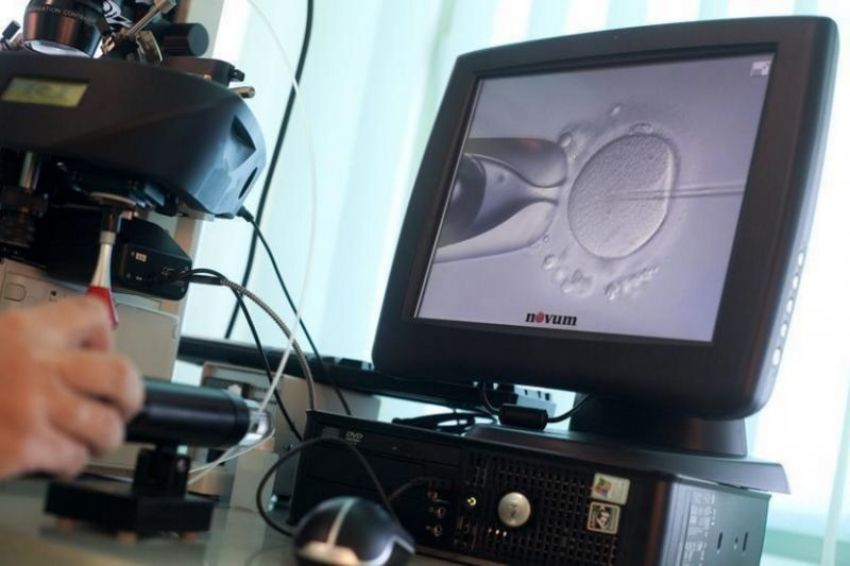'Bachelorette' contestant sired 114 kids? Donor-conceived siblings raise ethical concerns

A contestant on a reality TV show has claimed he donated sperm that resulted in the creation of over 100 children, something that actual donor-conceived children lament given the issues that are rarely discussed.
Matteo Valles, a 25 year old management consultant from Atlanta, Georgia, who is one of 30 contestants starring in the 15th season of ABC's "The Bachelorette," lists on his biography that he has successfully been “a sperm donor who has helped create 114 children for all types of families.”
If his assertion is not a boast and is indeed true, he is "starving his children as the father in their lives in addition to robbing them of contact with each other from birth," said Katy Doran, a donor-conceived woman, in a Tuesday interview with The Christian Post.
"None of these relationships or essential times in their lives can be made up for by the time he may be ready to meet them," she added.
Doran is now an advocate for donor-conceived persons and the operations manager for CanaVox.
Although sperm donation has historically been shrouded in secrecy it has become more openly discussed in recent times. Such secrecy is becoming harder to maintain in light of the growing presence of DNA tests and online registries that have revealed cases in which single sperm donors have produced dozens of children, The Atlantic noted Monday. And the sperm-donation industry is largely unregulated in the United States. The precise number of donor-conceived children born each year in the U.S. is not known.
Among the moral quandaries The Atlantic piece explored were: "What if you have a donor who’s passing on something they don’t test for?" and "How many children is too many for a single donor?"
The questions that ought to be asked, Doran said, expressing disgust with The Atlantic's lens on the issue, include: "What is [the fertility industry] doing to this man?" And, "How will being conceived this way affect his children?"
Ethical questions about donor-conceived persons related to what might be passed down genetically that their donor fathers did not test for, "treat us like we're dangers to the environment and not the worthy human beings we are," she said.
"It's disgusting and undignifying, and this language needs to stop altogether."
The reality show contestant who says he fathered 114 children might attempt to have a relationship with his children later and he might prove successful, she went on to say.
"But how is he going to handle having deep relationships with so many children? That's something that needs to be seriously considered by anyone thinking of selling or donating their gametes to create offspring," Doran concluded.
Her brother, Matt, 32, an aerospace mechanical engineer who was also conceived with the same donor sperm feels similarly. Matt is also the founder of a database of donor-conceived persons called DonorChildren.com.
"A common misunderstanding many have is that we are OK with it, that we're not affected by it, that we don't need to know our biological parents. I think those are fallacies," Matt Doran said in a phone interview with CP on Tuesday.
In 1992, their biological father was featured in an episode of the tabloid news television show "Hard Copy," which ran in syndication from 1989 to 1999. Doran says his biological father now claims that he did not consent to the "Hard Copy" investigation of him though he did donate sperm over the course of 12 years, from 1980 to 1992. It is rumored that they have over 500 half-siblings.
One of the most common reactions to donor-conceived people when they are outed is others telling them that they should be thankful for their lives, he explained.
"Even our progenitors, my own [biological] father when I found him kind of rubbed it in my face that I came from superior genes and I should be grateful, and that he shouldn't have to endure any personal discomfort, that he gave me the gift of life," Matt Doran said.
"And a lot of sperm donors especially, I have noticed, are pretty narcissistic. I think there is a common psychological trait among people who freely give up their offspring through third-party reproduction."
He added that it's also a misconception that anonymous parents don’t want to be found.
As sperm donation becomes even more normalized, "it is treated like a catalog from Macy's where you literally buy tiered access to the donor's information. You can purchase an audio file, a biography, hearing their voice. You pay-to-play almost. You pay to access more information, which is really messed up, because not everybody is going to pay to have all of that."
Creating human beings ought not be the business of profit-seeking third-party reproductive operators, he believes.
"People who are 21 are masturbating into cups [to donate sperm], everyone is pretty healthy at 21, there's the whole health history thing disclosure but it's really a smokescreen," he said.
"It's basically treating human beings like a product."



























